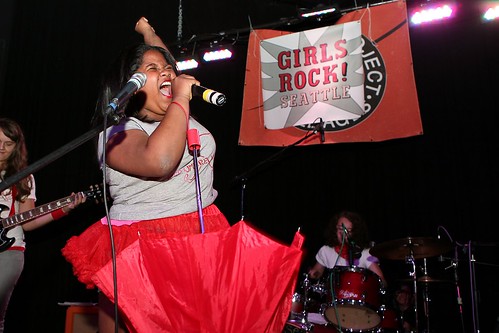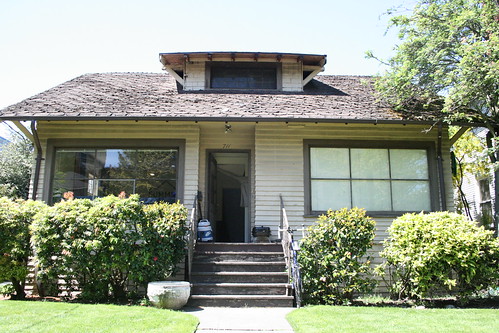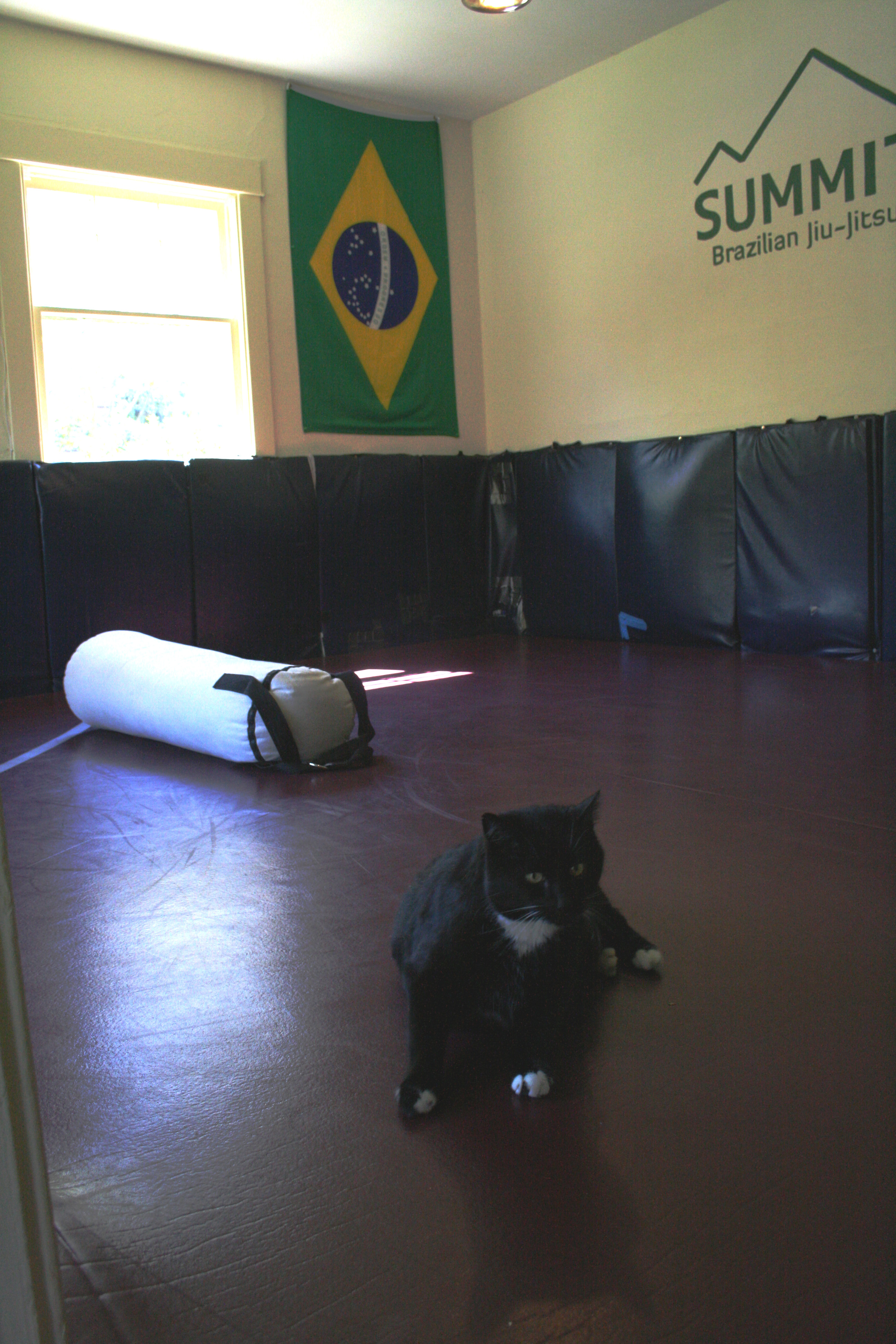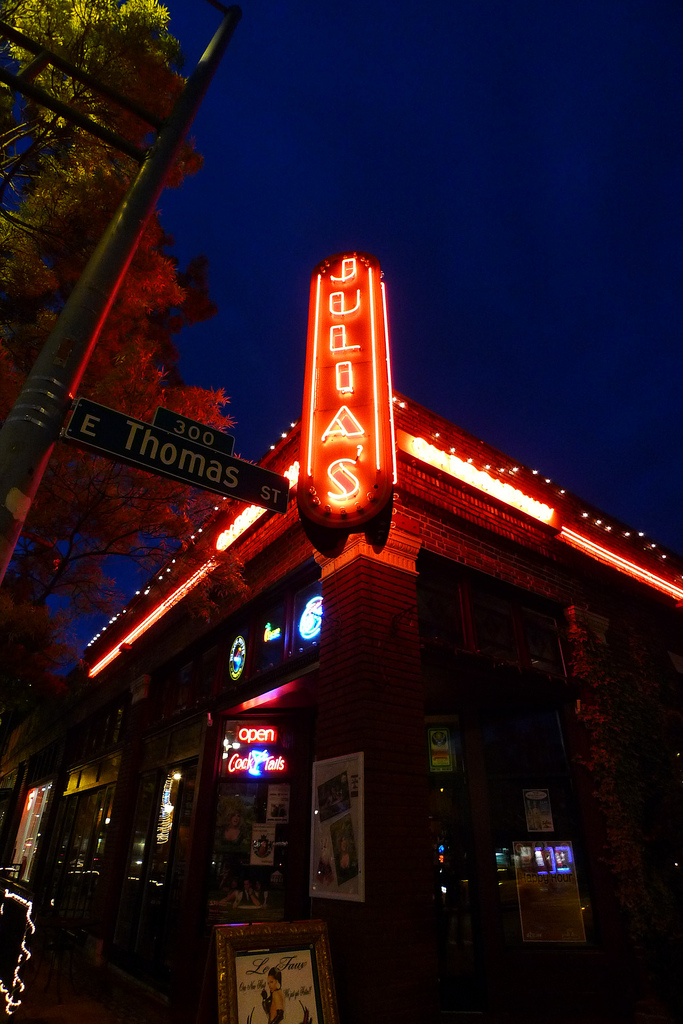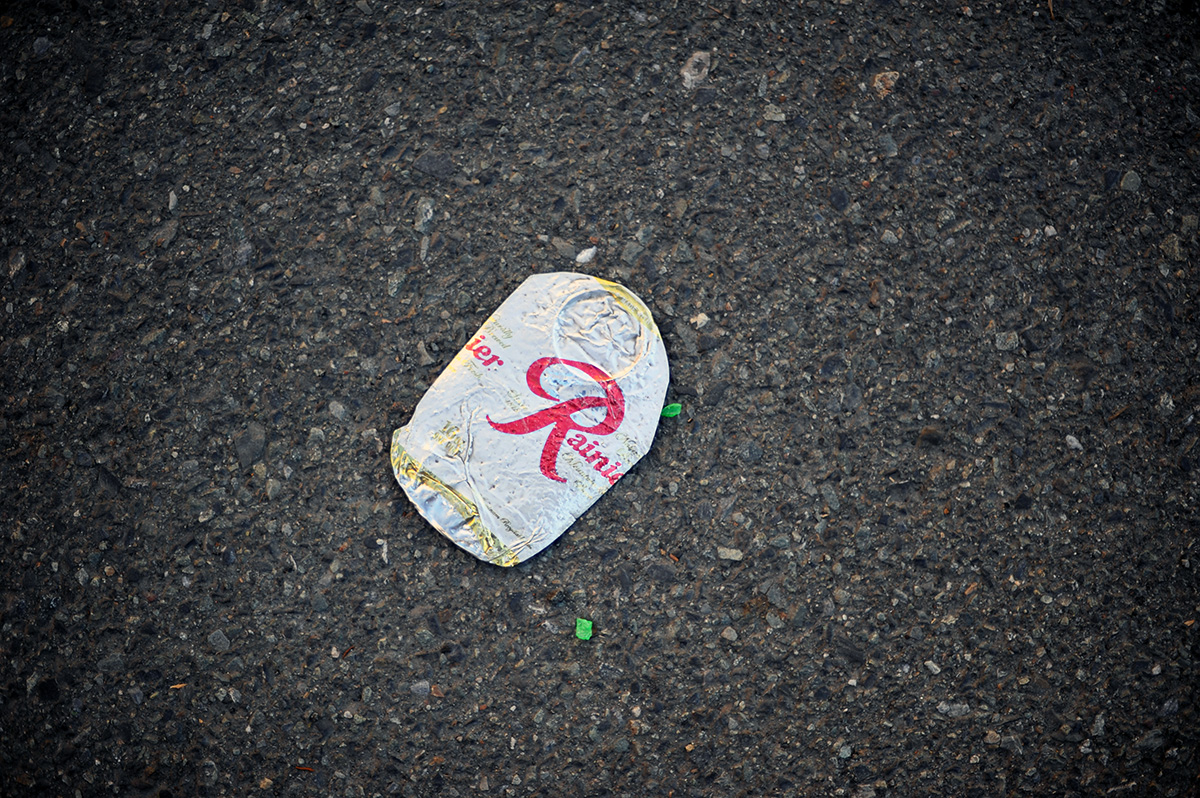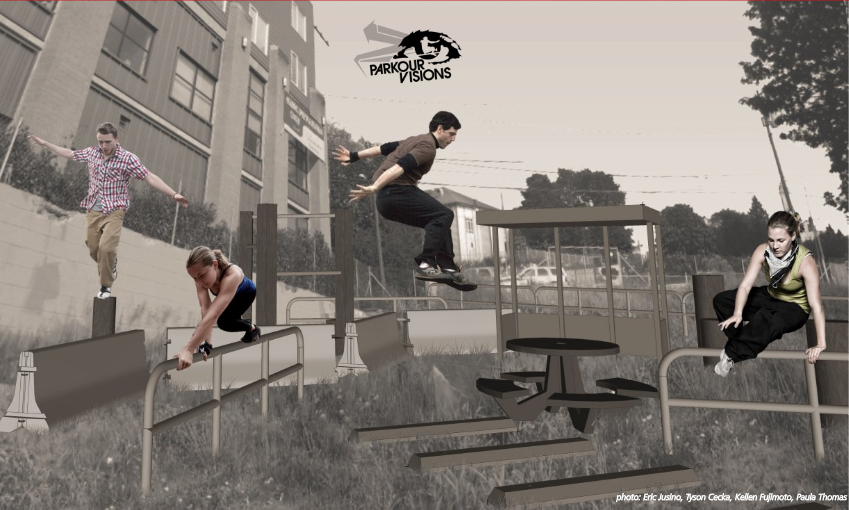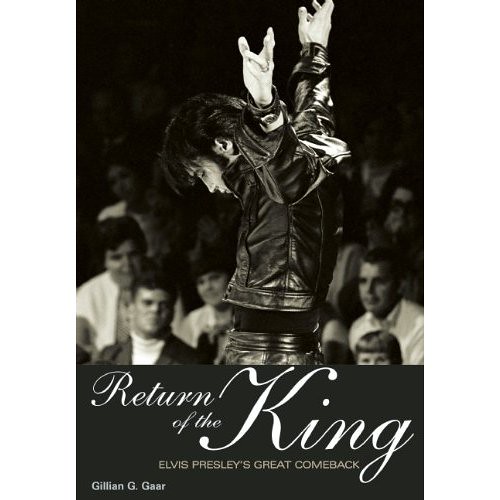Lest CHS be accused of civic sensationalism, we try to follow up on some of the fantastic (and less so!) ideas that people float across Capitol Hill. With another for the civic fantasy file coming in this weekend — a year-round Capitol Hill Block Party in Pike/Pine? — we thought it might be good to check in with another recent urban planner fever dream: the city’s plan to invite street food entrepreneurs to set up shop on Broadway and create a Capitol Hill street food court.
“We have to go through huge hoops with the city, health department and other agencies to get our licenses, and pay a lot of money to serve food in the city of Seattle,” said Karsten Betd, co-owner of Julia’s on Broadway. “Some of us have lost 10 to 20 percent of our business already, because of the economy and [light rail] construction. We’re still here, we’re stuck in our leases for five, 10 or 15 years. Put more competition in there, and what are we going to do?”
Another Broadway restaurant owner declined to be identified because, as the owner told us, their long-running restaurant needs all the business it can get and can’t afford any backlash sparked by opposition to the popular street food plan.
“I honestly feel, in this business climate at this particular point in time, the last thing we need is more competition from operations that haven’t put in near the amount of time and money that [Broadway restaurants] have invested,” said the restaurateur. “The time and money spent on equipment, lavatories, garbage pickup, water and many other things needed to run a business… the costs street vendors will pay pales in comparison to what brick and mortar businesses are paying.”
Michael Wells, president of the Capitol Hill Chamber of Commerce, said that the community’s overall opinion on the matter is so divided that the Chamber is not able or willing to take an official stance on the issue at this time. The Broadway Business Improvement Association, also headed by Wells, hasn’t chosen a side, either.
“Neither one has taken a stance, and I don’t know if either one will,” said Wells.
Brick and mortar businesses, said Wells, are concerned that moving food vendors with lower price points and lowered standards from the Health Department will run them out of business.
“Some of the folks working in the traditional realm feel nervous about a shifting dynamic in the way people think about the dining experience and pricing. That’s justified,” said Wells. “It’s a difficult time for all small businesses. If it feels like an unfair playing field and there are certain inequities in the way a business is run, I can respect and understand those concerns.”
While the Chamber does recognize the struggles that brick and mortar restaurants could face with an increased amount of competition, part of their mission is to evaluate what’s best for the neighborhood, which could mean increased foot traffic and vitality, a proven outcome in other cities like Portland that offer food truck service.
“It’s very interesting, the way that [street food vendors] could activate spaces and create new food experiences,” said Wells. “It’s a valid economic model and very sexy right now. People are excited about it.”
One compromise being discussed that could lessen the blow of increased competition is a full-blown street fair, where people could sell things like watches, t-shirts and other goods, much like New York City. This could bring more foot traffic to the area and give people from outside the city more of a reason to visit — and eat.
An issue that hasn’t been fully addressed by DPD regarding street food vendors is bathroom accessibility. The city famously tried — and failed — to offer sanitary public restrooms on Broadway once before, but now, outside of Cal Anderson, bathroom options are limited to paying customers in brick and mortar businesses. If food vendors are serving food outside, where will their employees use the restrooms and wash their hands? Where will their customers go? Some restaurants fear that those customers will roam Broadway, going into other businesses just to use their bathrooms. Business owners are also worried about increased trash in the streets and wonder who will pick it up.
“I’ve been to Portland and other places near fast food or quick service areas, and there’s trash everywhere, it’s rather unsightly,” said the anonymous restaurant owner. “It doesn’t smell good, there is water in the streets… it’s unsanitary, a huge health risk and a nuisance.”
One thing to keep in mind while debating the pros and cons of the issue, said Wells, is to “level the playing field and play fair.” That statement can be used on both sides of the argument.
“I think these are all real world concerns and needed to be respected as such,” said Wells. “These restaurant owners put their heart, soul and family savings into creating a business on Broadway.”
UPDATE:
We received this e-mail from the new owner of the Broadway Grill who read this post and wanted to add his voice to the conversation. If you have have more to say and want to let us know about it, you can reach us at [email protected]
As a brand new business owner of one of the largest restaurants on Broadway, I understand the concerns of my fellow Broadway restaurant owners. I get that it is incredibly expensive to run an establishment on the hill. When first taking over the grill, I was shocked by the amount of rent/taxes etc. that has to be paid monthly, but that is the price you pay for guaranteed foot traffic. On the other hand, I sympathize with the community about wanting food cart vendors. I too enjoy a greasy hot dog slathered with cream cheese upon leaving The Cuff after one too many vodka tonics. Isn’t there a solution that would favor everyone? Perhaps we could have a tax for the food vendors to pay for extra garbage clean-up and help “level the playing field” so to speak. I think that if we do accept the food vendor idea, they should be responsible for supplying compostable utensils and food containers that would help with the amount of waste created. I also am interested in the street fair concept. I think that both are wonderful ideas to help increase the popularity of Capitol Hill. After living in New York for five years and spending a lot of time in Portland, the street activities were some of my favorite things in both cities. The street fair concept would help limit the amount of food carts allowed possibly helping to ease the amount of competition for Capitol Hill restaurants, also helping to fill the “dead zone” between John and SCCC until the light rail construction is finished. To me, this is not a problem…this is an opportunity for growth. Re-evaluating how we run our businesses could be the best thing that ever happened to us. Why is everyone so afraid of change?
To close, I would like to caution others of the criticism towards Michael Wells and The Capitol Hill Chamber, they are working to find a solution that will benefit everyone. If you have a comment or criticism, attend a meeting and let your voice be heard.
Matthew Walsh
Owner
The Broadway Grill




